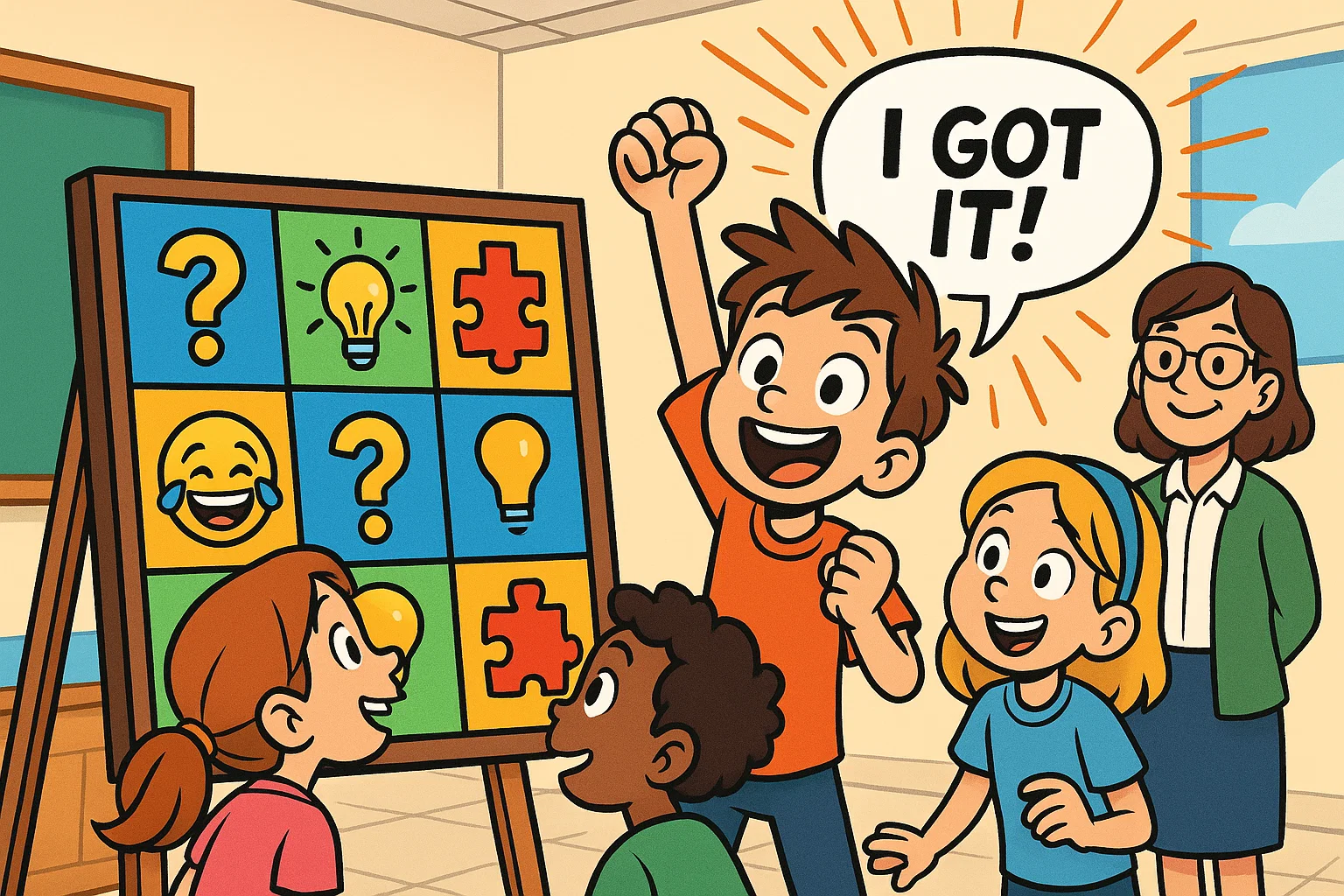Welcome to the ultimate collection of riddles for kids! As your child steps into the world of double digits, their cognitive skills are rapidly expanding. They’re ready to move beyond simple guessing games and dive into complex logical challenges that genuinely sharpen their minds. This curated list of brain teasers is specifically designed for 10-year-olds – or “tweens” – to engage their growing logical thinking, expand their vocabulary, and ignite their sense of humor.
Whether you’re planning a family game night, looking for a fun school warm-up, or just need to keep kids busy during a long road trip, these awesome riddles are a great way to get their brains working. We’ve organized them into clear categories, from easy riddles and funny riddles to tricky riddles and advanced multi-step puzzles, making it easy for you to navigate and find the perfect challenge. Let’s see how many your smart kid can solve!
Why Riddles Help Kids Age 10
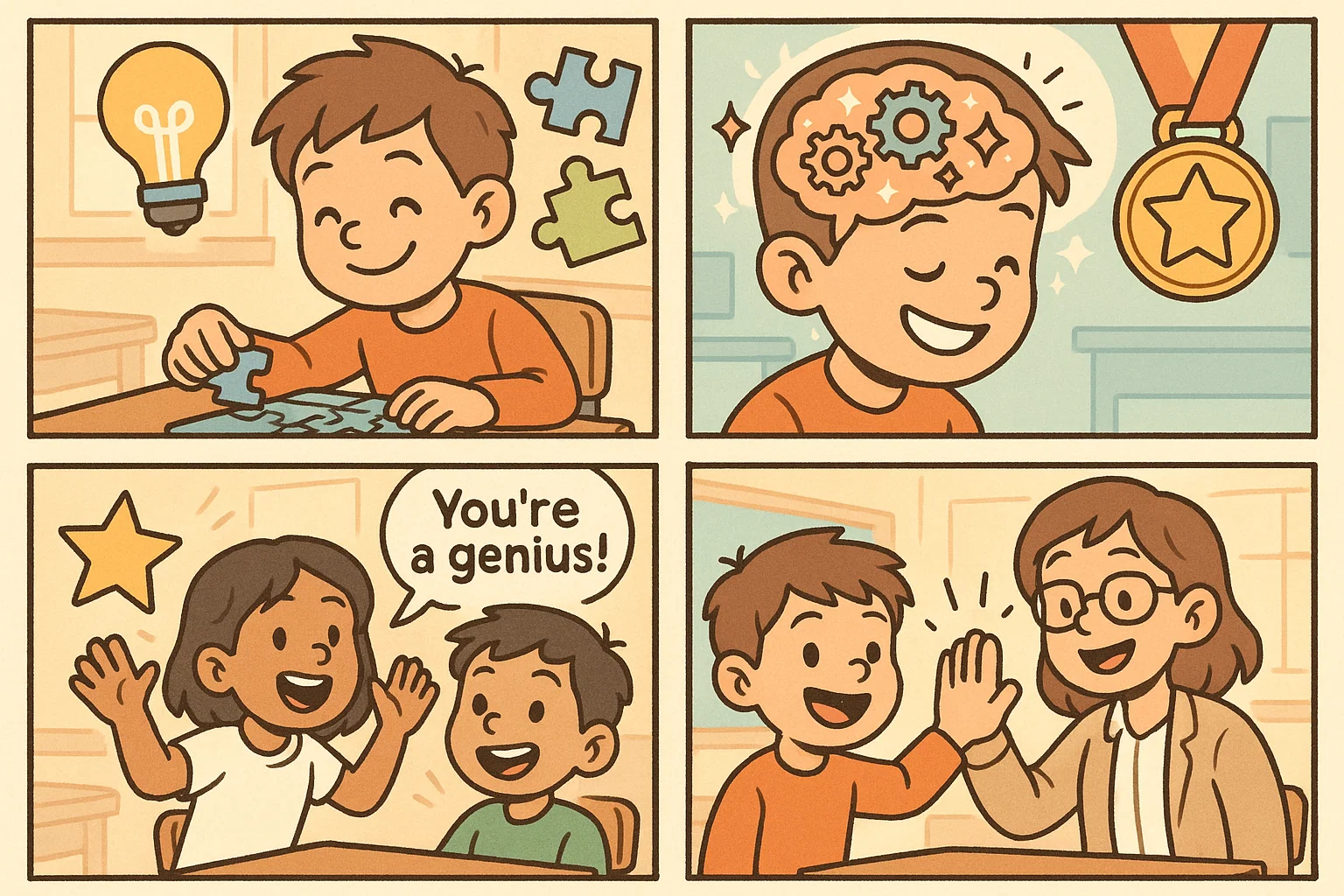
At age 10, children are typically in the concrete operational stage of cognitive development, which means they can think logically about concrete events and objects. Research shows that as children grow older, their ability to understand riddles improves significantly — children aged around 8 and up show stronger comprehension of word-play puzzles when they also have a richer vocabulary. This means that riddles offer a structured, fun way to boost not just vocabulary but also logical-thinking skills.
Skill Development at This Age
Riddles are far more than just games for kids; they are powerful tools for building crucial intellectual muscle.
- Problem-Solving Skills: Each riddle is a small-scale problem. To solve it, your child must analyze the clues, test hypotheses, and discard incorrect assumptions. In fact, evidence from an intervention study shows that playing brain-teaser puzzles improved attention and sustained focus in participants — essential executive functions for school and life. Riddles can act similarly as mini-workouts for the thinking brain.
- Critical Thinking and Retention: Tricky riddles often rely on wordplay, double meanings, and clever misdirection. This forces children to listen carefully, process information critically, and challenge their initial assumptions. This attention to detail improves thinking skills and retention of new information.
- Vocabulary and Language: Riddles introduce new words and concepts in context. Whether it’s an animal riddle or a food riddle, the clues help cement the meaning of words like “mane,” “tusk,” or “peel” through engaging association.
- Patience and Persistence: When a child is truly stumped by a complex puzzle, they learn to stick with it. This gentle frustration teaches them that not every answer is immediate, fostering the patience needed for difficult long-term projects.
Fun Family and Classroom Activities
Riddles easily integrate into a variety of social settings, making them a cornerstone of quality time.
| Activity | Description | Ideal Setting |
| Morning Warm-Ups | Teachers use a few quick riddles (like one-sentence brain teasers) to activate students’ minds before lessons, especially for subjects like math or science. | Classroom |
| Road Trip Games | Assign points for correct answers to create a competitive, engaging activity that makes the miles fly by. Riddles are a great way to keep kids busy without screens. | Car/Travel |
| Family Game Night | Make riddles the star! Divide the family into teams and have an adult read the clues. This promotes teamwork and hilarious attempts to pass the person who is struggling. | Home |
| Holiday Contests | Incorporate holiday riddles into parties and gatherings. For example, use Halloween logic riddles in October or Christmas and winter fun puzzles in December. | School/Home Parties |
Easy Riddles for 10 Year Olds
Start with these straightforward easy riddles to build your child’s confidence and get their brains warmed up. These are often great for younger kids of all ages too!
Quick Warm-Up Puzzles
These short, beginner-friendly riddles are ideal for kicking off any riddle session.
- What has a bed but never sleeps? (A river)
- What is full of holes but still holds water? (A sponge)
- What has an eye but cannot see? (A needle)
- What has one foot and four legs but can’t walk? (A bed)
- I am always hungry; I must always be fed. The finger I touch will soon turn red. What am I? (Fire)
One-Sentence Brain Teasers
These concise English riddles are excellent for encouraging fast thinking and recognizing the double meaning of common words.
- What is easy to get into, but hard to get out of? (Trouble)
- I have cities, but no houses; forests, but no trees; and water, but no fish. What am I? (A map)
- What has a mouth but never eats, and runs, but has no legs? (A river)
- What is always in front of you but can’t be seen? (The future)
- What can you catch, but not throw? (A cold)
Funny Riddles for Kids Age 10
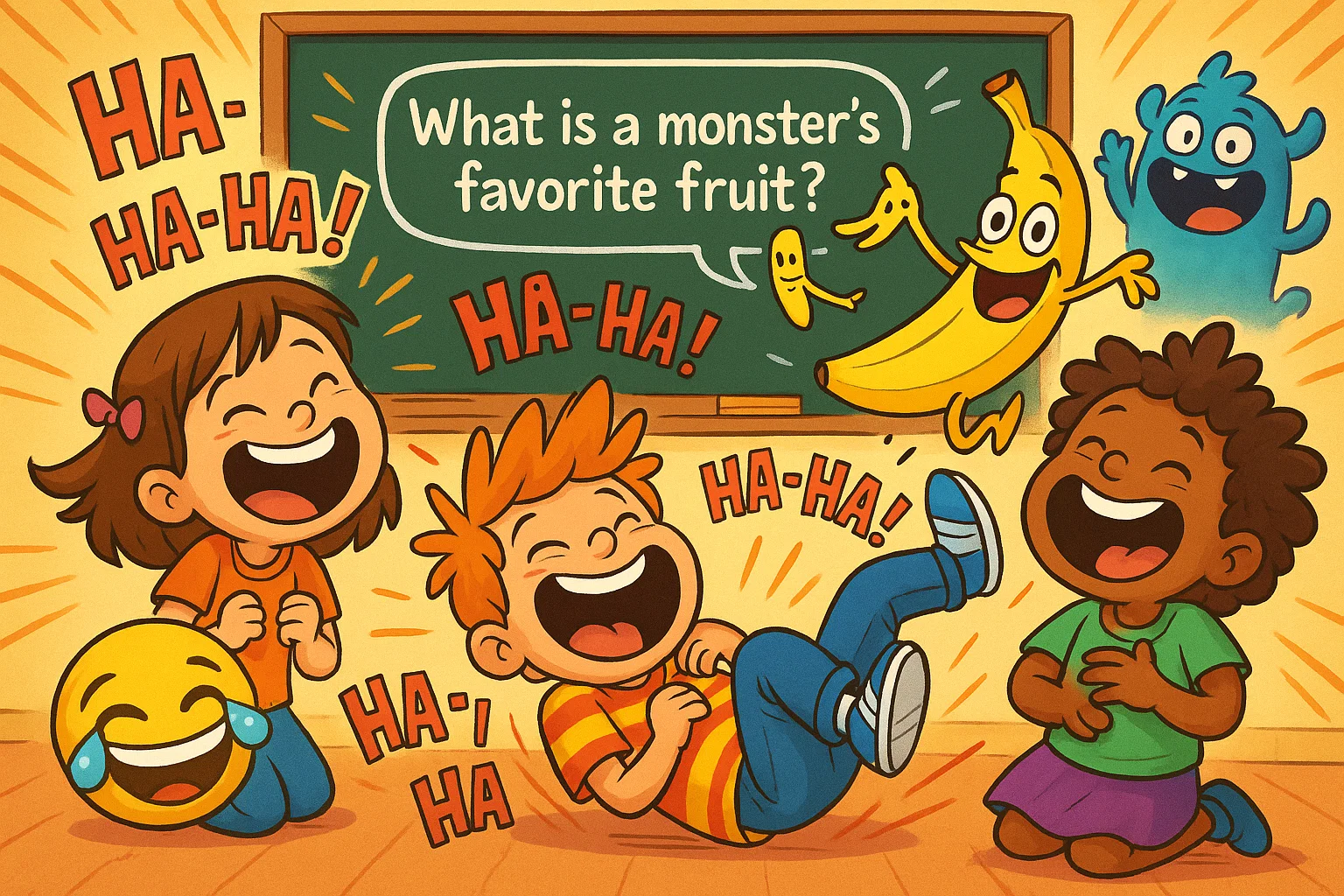
At this age, kids appreciate humor that’s a little smarter and involves relatable scenarios. These funny riddles focus on laugh-out-loud humor that fits older elementary school sensibilities.
School and Classroom Humor
These are great for a classroom setting or for kids to share with their friends at lunch.
- What kind of room has no windows or doors? (A mushroom)
- I have a spine but no bones, and I am often called a bookworm’s best friend. What am I? (A book)
- Why did the student eat his homework? (Because the teacher told him it was a piece of cake)
- What is a teacher’s favorite thing to eat? (An apple)
- A man builds a one-story house with nothing but red bricks. What color are the stairs? (There are no stairs, it’s a one-story house)
Silly and Goofy Jokes
Kids love a good pun or a truly silly scenario. These lighthearted riddles are perfect for bonding.
- What can go up a chimney down, but not down a chimney up? (An umbrella)
- What gets wetter the more it dries? (A towel)
- Why can’t a bicycle stand up by itself? (Because it’s two-tired)
- What question can you never answer yes to? (Are you asleep yet?)
- I am light as a feather, but even the strongest man can’t hold me for five minutes. What am I? (Breath)
Tricky Riddles for 10 Year Olds
Now, let’s step up the difficulty. These moderately challenging logic puzzles are designed to make tweens pause and think a little harder, pushing them to think outside the box.
Lateral Thinking Puzzles
These tricky riddles require lateral thinking – the ability to think creatively to solve problems. The answer is often surprisingly simple once the perspective shifts.
- I shave every day, but my beard stays the same. What am I? (A barber)
- What has many teeth but cannot eat? (A comb)
- A man went to a party and drank some punch. He left early and died on the way home. Everyone else at the party who drank the same punch lived. Why? (The poison was in the ice cubes in his glass, and the other guests finished their punch before the ice melted)
- What is full of keys but can’t open any doors? (A piano)
- Look at me, and I’ll disappear. What am I? (Silence)
“Gotcha” Wordplay Riddles
These awesome riddles rely on double meanings, puns, and common assumptions to trick the solver. They’re a fun test of listening skills.
- I have four daughters, and each of my daughters has a brother. How many children do I have? (Five: Four daughters and one son)
- You’re running a race and you pass the person in second place. What place did you finish in? (Second place)
- There is an ancient coin with a date marked 45 B.C. Is it genuine? (No, B.C. dates were marked before that dating system was invented)
- What begins with T, finishes with T, and has T in it? (A teapot)
- What word is always spelled incorrectly? (Incorrectly)
Hard Riddles for 10 Year Olds
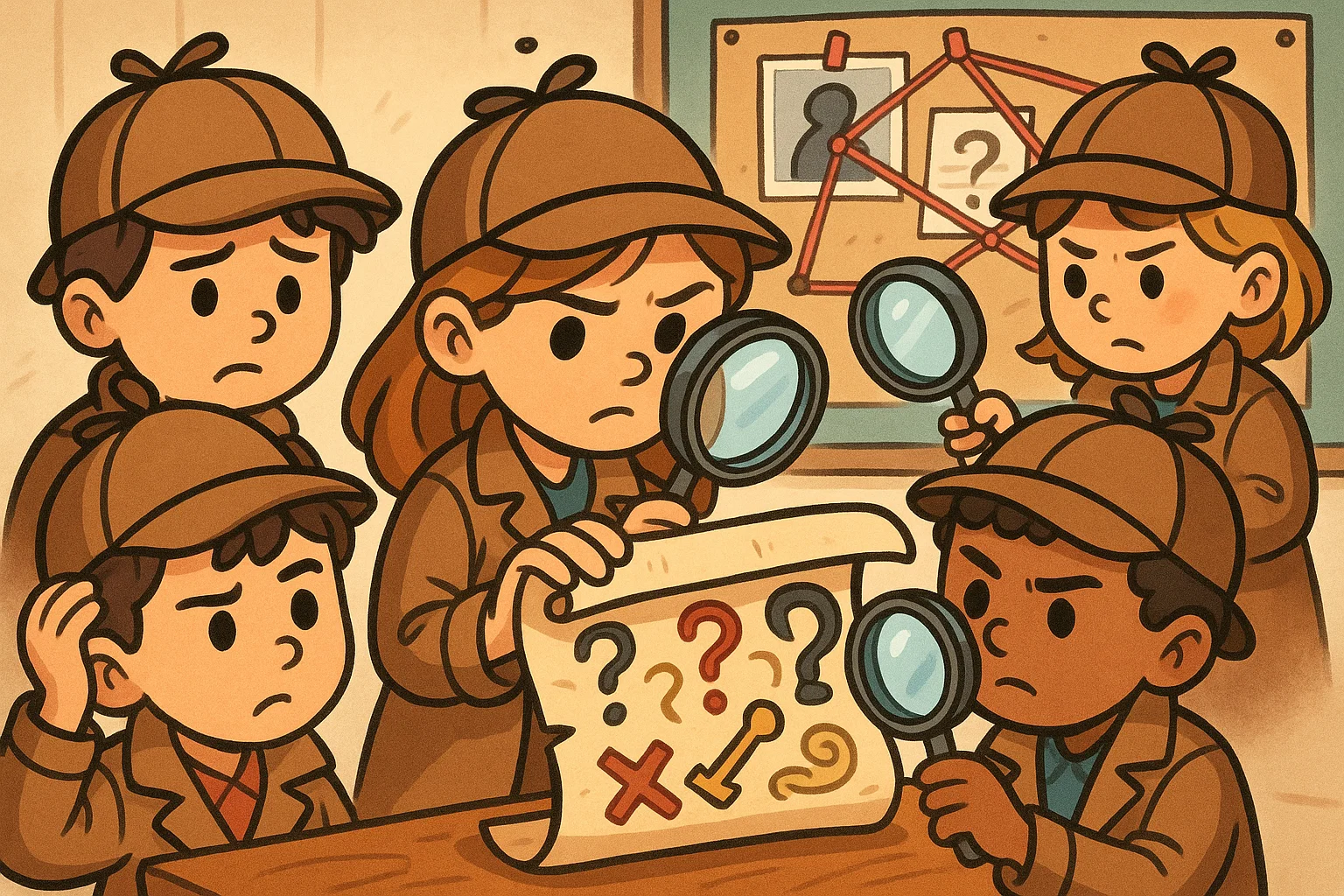
For the advanced thinker or those who enjoy a true mental workout, these riddles are more complex. They’re great for gifted programs or for children who confidently master the lower levels.
Multi-Step Logic Challenges
These longer brain teasers require a sequence of logical reasoning steps.
- A farmer has 17 sheep. All but 9 of them die. How many sheep does he have left? (9)
- Imagine you are in a room with two doors. One door leads to freedom, the other leads to a lion that hasn’t eaten in a year. Which door should you pick? (The door with the lion, because a lion that hasn’t eaten in a year would be dead)
- What has to be broken before you can use it? (An egg)
- I have many hearts, but no other organs. I can be happy or sad, but I cannot feel. What am I? (A deck of cards)
- I have no voice, but I can tell you a story. I have many pages, but I am not a book. What am I? (A photo album/magazine)
Riddles With Surprise Answers
These puzzles use complex clues to steer the solver toward a common-sense answer they often overlook.
- What has cities, but no houses; forests, but no trees; and water, but no fish? (A map)
- A girl was born in 1990 and died in 1990, but on her 10th birthday. How is this possible? (She was born in room number 1990 of a hospital, and the number is the street address)
- What invention lets you look right through a wall? (A window)
- I have keys, but open no locks. I have a space, but no room. You can enter, but you can’t go outside. What am I? (A keyboard)
- I am taken from a mine and shut up in a wooden case, from which I am never released, and yet I am used by almost everybody. What am I? (Pencil lead/graphite)
Math Riddles for 10 Year Olds
Riddles are a great way to sneak in some math practice! These focus on arithmetic, logic, and patterns, making them excellent supplements for homework or classroom warm-ups.
Classroom Math Warmups
Teachers often use these for engaging starts to lessons, focusing on foundational math skills.
- What do you call a number that can’t stay still? (A “roamin’” numeral, or Roman Numeral)
- I add 2 sons to one father and two fathers to one son. Who am I? (A grandfather, father, and son, which is 2 fathers and 2 sons total)
- If a rooster lays an egg on the peak of a barn roof, which way will it roll? (Roosters don’t lay eggs)
- A pound of feathers or a pound of bricks – which weighs more? (They weigh the same: one pound)
- I am an odd number. Take away one letter and I become even. What number am I? (Seven)
Number Tricks and Equations
These brain teasers for kids require simple calculation but clever logical interpretation.
| Riddle | The Math Behind It | Answer |
| Divide 30 by half and add 10. What is the answer? | 30 ÷ 0.5 + 10 = 70 | 70 |
| There are 7 boxes on a table. If you put 5 apples in each box, how many apples do you have? | 7 x 5 = 35 | 35 |
| How can you get 4 using only the number 3? | 3 + (3 ÷ 3) = 4 | 3 + (3 ÷ 3) = 4 |
| What is the number where if you multiply it by any other number, the answer will always be the same? | 0 x any number = 0 | Zero (0) |
| If you flip a coin 10 times, what is the probability that you will have an equal number of heads and tails? | P(Heads) = P(Tails) = 0.5 | ≈ 0.25 |
Animal Riddles for Tweens

These focus on animals kids recognize, requiring reasoning about their unique traits, sounds, or behaviors – like a creature that has four legs or can fly without wings.
Wild Animals
Riddles about creatures from the forest, jungle, or safari.
- I have a long neck, but I can’t stick out my tongue. I am spotted, but I don’t have a disease. What am I? (A giraffe)
- I am a small creature that spins a thread, building a home that catches my food instead. What am I? (A spider)
- I have a great memory, and a long trunk. I love peanuts, and I never use a bunk. What am I? (An elephant)
- I am known for my roar, but I sleep 20 hours a day. I have a long tail and a shaggy mane. What am I? (A lion)
- I fly without wings, and I chirp without a mouth. I can sometimes see what the strongest man can’t. What am I? (A bat)
Pets and Farm Animals
Everyday animals with playful clues.
- I wag my tail when I’m happy, and I bark at the mailman. I’m a man’s best friend. What am I? (A dog)
- I give you milk, but I am not a refrigerator. I have four legs, but I am not a table. What am I? (A cow)
- I purr and chase mice, and I have nine lives. What am I? (A cat)
- I have a wool coat, but I don’t wear clothes. I say “Baa” and roam the meadows. What am I? (A sheep)
- I am covered in feathers, and I wake you up every morning. What am I? (A rooster)
Food Riddles for 10 Year Olds
Food riddles are a great way to expand a child’s vocabulary and cultural knowledge by focusing on common items found in the kitchen.
Sweet and Snack Ideas
Dessert-themed riddles that kids love.
- I’m sweet and cold, and I melt in the heat. I come in a cone and am a summertime treat. What am I? (Ice cream)
- I am round and cheesy, and I get delivered in a box. I have toppings like pepperoni and peppers. What am I? (Pizza)
- I am an orange fruit that is also a color. What am I? (An orange)
- I have layers, but I don’t wear clothes. I can make you cry, but I can’t feel pain. What am I? (An onion)
- I am the king of the fruits, covered in a crown of leaves. What am I? (A pineapple)
Healthy Foods and Vegetables
Educational riddles that spark curiosity about diet and nutrition.
- I wear a red jacket, but I’m green inside. I’m often found in a salad. What am I? (Tomato)
- I look like a tree, but you can eat me. I am healthy and green. What am I? (Broccoli)
- I don’t have lungs, but I can breathe. I am covered in a yellow peel. What am I? (A banana)
- I am brown and crunchy and grow underground. I am a great source of protein. What am I? (A peanut)
- I am long and orange, and rabbits love me. What am I? (A carrot)
Object Riddles for Kids
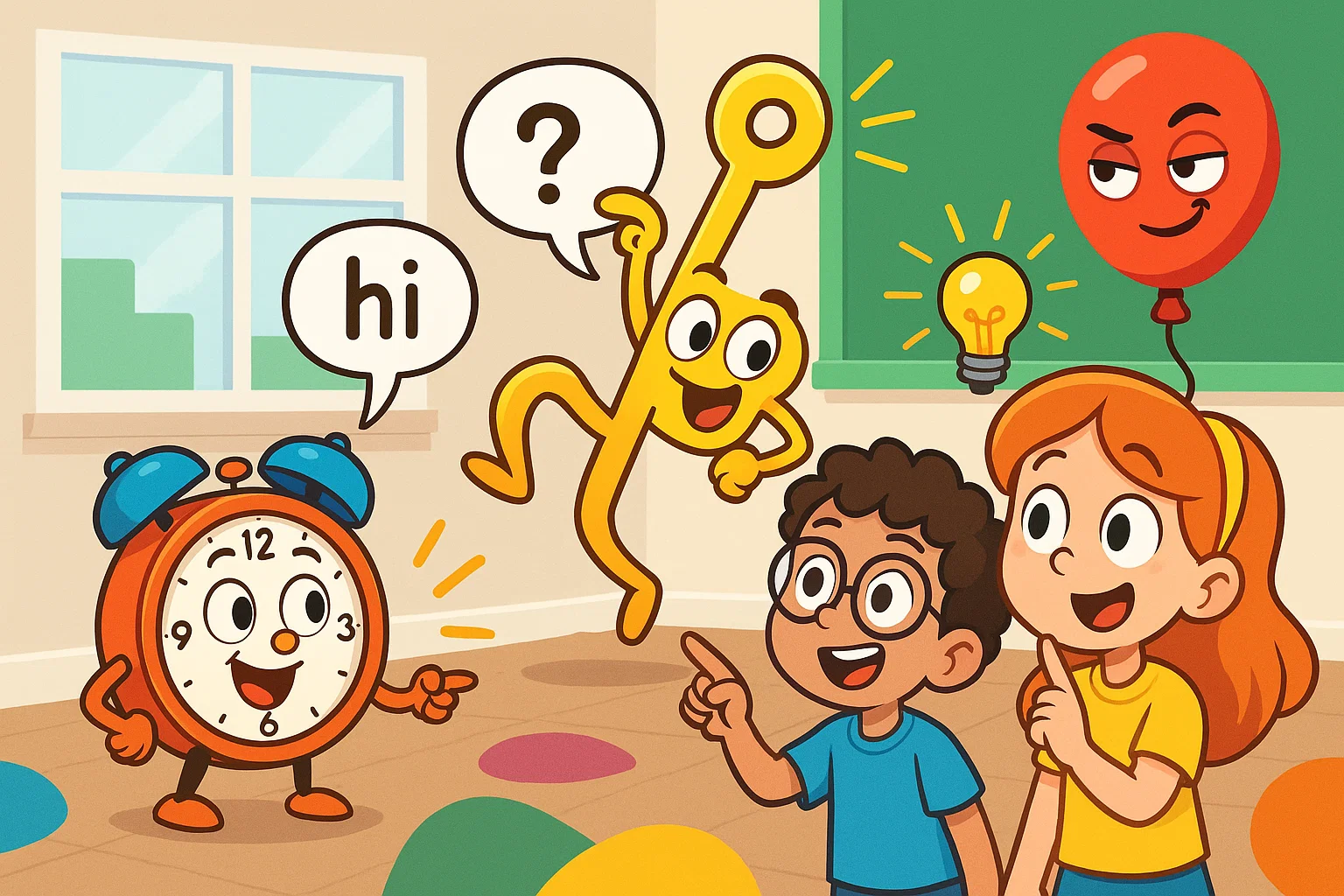
These puzzles focus on things found at home, school, or the playground, encouraging children to think about the shape and function of everyday items.
Mystery Objects Kids Use Daily
Encourage children to guess based on the object’s appearance and purpose.
- What has a neck but no head? (A bottle)
- What can you hold in your left hand but not your right? (Your right elbow)
- I am always hungry; I must always be fed. The finger I touch will soon turn red. What am I? (Fire)
- I follow you everywhere but can only be seen in the light. What am I? (A shadow)
- What has only one foot but can stand and run anywhere? (A ruler or a yardstick)
Technology and Gadgets Riddles
Riddles about modern items like tablets, computers, and game consoles.
- I have a screen and many apps, and you tap me with your fingers. I let you play games and read books. What am I? (A tablet or smartphone)
- I have a mouse, but I’m not an animal. I have a screen, but I’m not a TV. What am I? (A computer)
- I have buttons and joysticks, and I help you beat your high score. What am I? (A video game controller)
Nature Riddles for 10 Year Olds
These riddles cover weather, seasons, geography, and elements, making them a fun way to learn about the world around them.
Weather and Seasons
Riddles that teach climate concepts.
- I am white and cold, and I fall from the sky. I melt when the sun is too bright. What am I? (Snow)
- What has to be broken before you can use it? (An egg or silence)
- What happens once in a minute, twice in a moment, but never in a thousand years? (The letter “m”)
- I have a beautiful coat of many colors, but I’m not a rainbow. I come after a storm. What am I? (A rainbow)
- I have no legs, but I run. I have no voice, but I roar. What am I? (The wind)
Earth and Space
Riddles about landforms, the moon, and stars.
- I am a body of water, but I have no banks. What am I? (An ocean or a lake)
- I am a giant ball of gas, and I give off heat and light. I am the center of our solar system. What am I? (The Sun)
- I am a rock in space, and I orbit the Earth. I change my shape every night. What am I? (The Moon)
- What has an invisible eye, but cannot see? (A hurricane)
- I have no arms or legs, but I can climb a mountain. What am I? (A river)
Holiday Riddles for Kids
Adding riddles relevant to school celebrations can be a fun activity for parties and family gatherings.
Halloween Logic Riddles
Lightly spooky, age-appropriate fun.
- I wear a suit that is long and black, and I sleep in a wooden box. I am afraid of the sun. What am I? (A vampire)
- I am round and orange, and I have a silly face. I light up when it’s dark outside. What am I? (A pumpkin or Jack-o’-Lantern)
- What do you get when you cross a vampire and a snowman? (Frostbite)
Christmas and Winter Fun
Seasonal riddles for parties and family nights.
- I have needles, but I cannot sew. I get dressed up in lights and tinsel. What am I? (A Christmas Tree)
- I jingle all the way, but I’m not a tambourine. I help pull a very famous sleigh. What am I? (Sleigh Bells)
- I come down every December, and I bring presents to all the good boys and girls. What am I? (Santa Claus)
Logic Riddles for Smart Kids
These focus on pure reasoning skills, sequencing, and detective puzzles – a true test of a 10-year-old’s growing intellectual abilities.
Fix-the-Clue Challenges
Riddles where the clues need careful analysis to reveal the answer.
- A ship is filled with people, and the captain is a 10-year-old boy. How is this possible? (The boy’s name is Captain)
- I belong to you, but everyone else uses me more often. What am I? (Your name)
- What has an eye but cannot see? (A needle)
- What has to be broken before you can use it? (An egg)
Pattern and Code Riddles
Simple cryptic-style puzzles for beginners to practice recognizing patterns.
- What comes next in this sequence: J, F, M, A, M, J, J, A, _? (S — September; initials of the months)
- Which letter is the odd one out: T, E, A, S, I? (S – all the others are letters in the word “TEAMS”)
- A farmer has 10 sheep. He separates the four daughters from the mothers. How many sheep are left in the pen? (10, he only moved the daughters)
- What do you put in a toaster? (Bread or toast)
How to Create Riddles for Kids Age 10
After solving these best riddles for kids, your child might be inspired to write their own! This is a powerful step in cementing their understanding of wordplay and logic.
Choose the Answer First
The easiest way to write a riddle is to start with the object you want the answer to be, then work backward.
- Select the Object: Say you choose the answer “Pencil.”
- List Its Traits: One foot (lead), mouth but never speaks (eraser), is short when used.
- Translate to Clues: Turn the traits into playful, misleading clues: “I have one foot but can draw many places.” “I have a mouth but never speak.”
Add Hidden Clues With Wordplay
Crafting smarter riddles involves using wordplay that subtly hides the true answer.
- Focus on Function, Not Name: Instead of saying “I am yellow,” say, “I peel away my coat when you eat me” (Banana).
- Use Comparative Adjectives: “I am light as a feather, but even the strongest man can’t hold me…” (Breath)
- Create Paradoxes: The most engaging riddles are paradoxes: they have properties that seem to contradict reality. For example, “I have cities but no houses” (Map).


